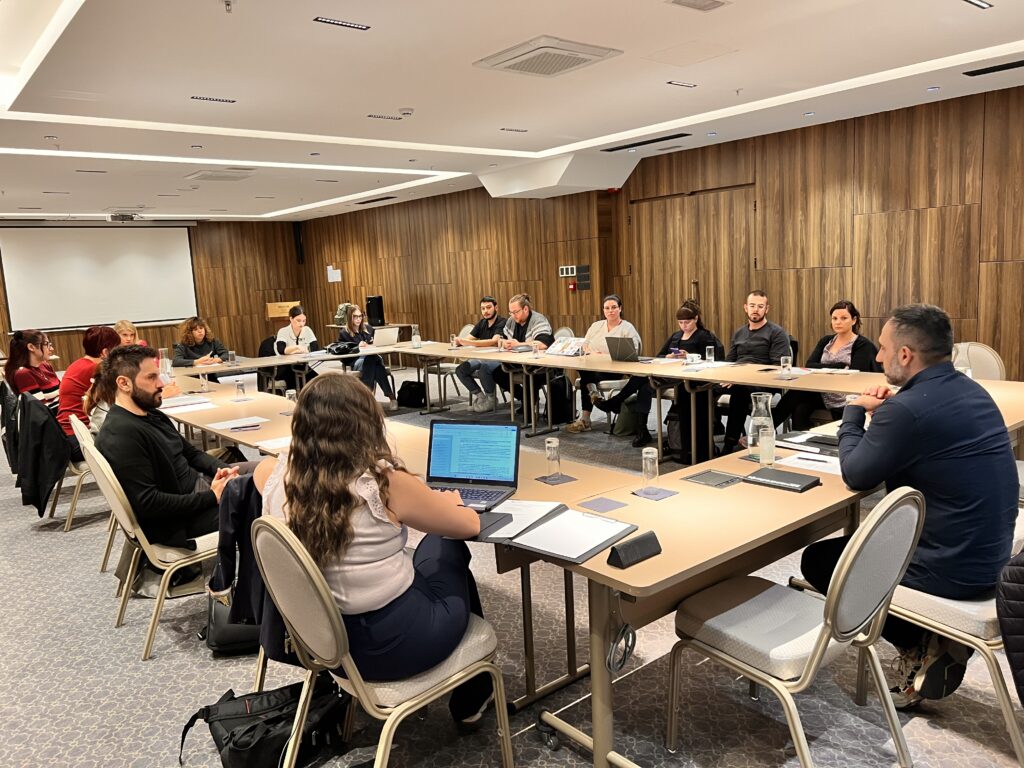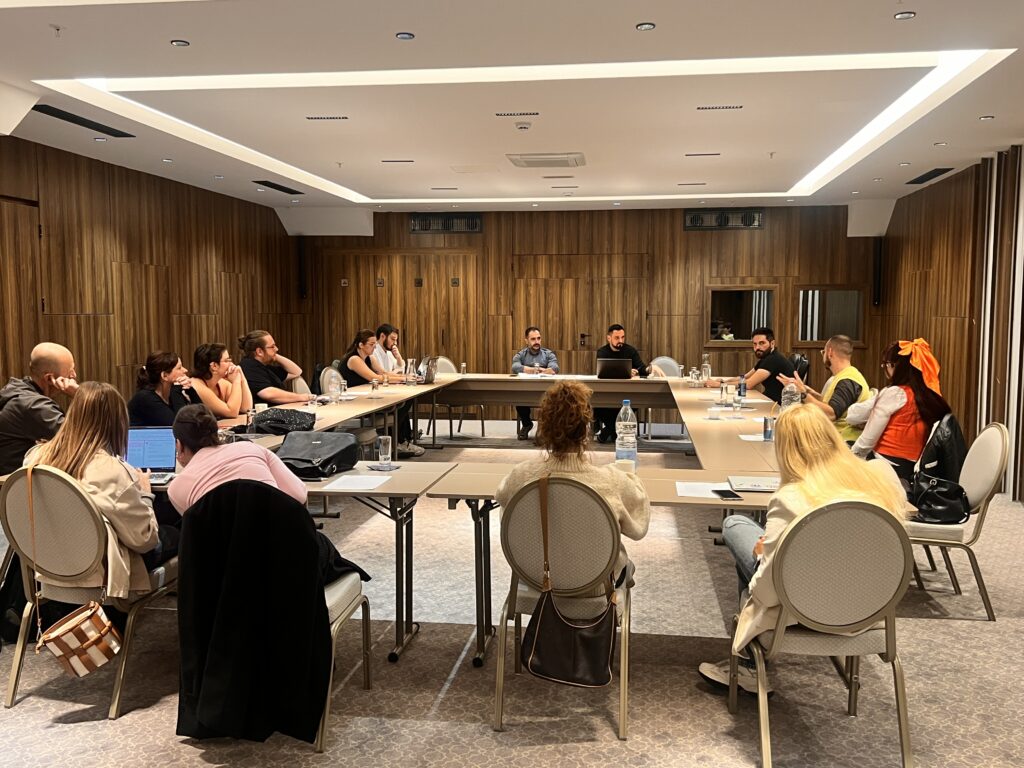“Exchanging experiences and establishing direct contact led to new collaborations, actions, and ideas,” was the message from the two-day meeting of civil society organizations from Montenegro, Albania, Bosnia and Herzegovina, Kosovo, North Macedonia, and Serbia, whose projects are supported through the Together for LGBTQI+ Equality programme. It is implemented by the Centre for Civic Education (CCE) in partnership with ERA – the LGBTI Equal Rights Association for the Western Balkans and Turkey, Queer Montenegro, the Queer Center from Skopje, the Tuzla Open Center (TOC), NGO OMSA from Albania, and the Centre for the Development of Social Groups from Kosovo. It is financially supported by the European Commission, with co-funding from the Ministry for Regional-Investment Development and Cooperation with NGOs.
The meeting provided organizations with a space to strengthen cooperation and networking, exchange experiences in implementing project activities, and reflect on the challenges they face in their work.

“This was invaluable for our regional networking and reflection. At a time when the space for human rights work is increasingly shrinking, it is important to openly discuss challenges and strategies that help us build resilience. Particularly significant were the ideas about empowering CSOs – strengthening advocacy coalitions, engaging youth, and using digital tools,” said Olda Ceta, Executive Director of the Institute for Social Contract from Albania, whose project is supported within this programme.
“In addition to sharing experiences in project implementation, it is even more important for us to connect in person with colleagues from the region and design joint steps. Only the synergy of our organizations can improve the position of LGBTQI+ persons in the region and influence understanding and acceptance by the wider community, which will, in turn, be reflected in public policy documents,” emphasized Nataša Konstantinović from the Youth Initiative for Human Rights in Serbia, whose project is also supported.
Admir Adilović from TOC added that such gatherings strengthen the spirit of activism. “Listening to the success stories of sub-grantees and the results they achieve through everyday work for their communities has been an absolute honor,” he emphasized.
“It is wonderful that we gathered here before Pride and that we are demonstrating regional solidarity, especially in a time when the LGBT movement faces systematic oppression on a global level. Our unity and joint work are crucial for the movement to be more resilient to political pressures that would be most satisfied if we were erased,” concluded Danijel Kalezić, Executive Director of the ERA Network, which is also a partner in this programme.

“Such meetings are important because they bring together organizations working to strengthen human rights and the position of LGBTIQ persons, enabling experience exchange and mutual learning. Networking encourages perseverance, especially in turbulent times,” highlighted Petar Đukanović, Programme Director at CCE.
Participants from the region also had the opportunity to take part in activities marking Pride Week in Podgorica, ahead of the 13th Montenegro Pride.
Marlena Ivanović, Programme Associate
